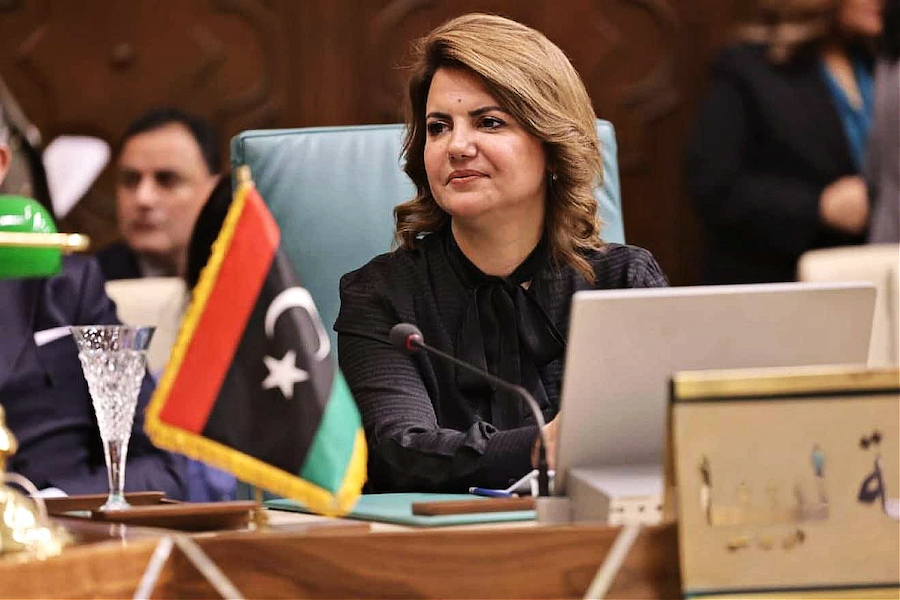
Diplomacy Can Still Play a Pivotal Role in Gaza
For half a century, the Middle East has been viewed as a geopolitical tinderbox, rife with a complex interplay of historical, religious, and political tensions. A litany of attempts by various national leaders and international bodies to instill peace has yielded a mosaic of results. Following the catastrophic events of October 7, peace has become more elusive than ever.
The recent escalation between Hamas and Israel has brought the protracted conflict into sharp relief, disrupting the gradual normalization of relations between the Arab world and Israel. The U.S.-mediated Abraham Accords had led to formal normalization with several Arab nations, signaling a cautious shift from historical antagonisms and hinting at a new era of diplomatic ties and economic partnerships.
However, despite the optimism the accords generated in parts of the Middle East, in many others citizens remain vehemently opposed to resetting relations with Israel, as Libyan Foreign Minister Najla El Mangoush knows only too well. A seemingly inadvertent tweet from her Israeli counterpart, Eli Cohen, about a discreet meeting in Rome focused on regional security triggered a diplomatic upheaval, inciting protests in Tripoli.
The intensity of the opposition to the meeting has unsettled the Libyan government, prompting a rapid rebuttal and the suspension of El Mangoush pending an investigation. A prevailing suspicion among Libyans suggests high-level government approval of the meeting with Israel, casting El Mangoush as a scapegoat. El Mangoush, for her part, has remained silent about the episode, and a full and frank revelation is unlikely due to the impact it would have on the stability of the country during a period of high emotion due to the plight of Gazans.
El Mangoush’s discreet efforts to maintain a dialogue with Israel reflected a genuine endeavor to mediate deep-seated regional tensions, informed by her academic focus on peacebuilding and conflict resolution. Her suspension, however, reflects a rigid governmental stance that must reconcile U.S. pressures for normalization with a Libyan public opinion that views Israel with enmity.
This is particularly problematic because opposition to dialogue has been exploited by groups like Hamas who wish to keep Israel politically isolated. The October attacks were conceived, at least in part, to undermine the growing normalization of relations between Israel and the region’s major powers, notably Saudi Arabia. It remains to be seen whether they have succeeded.
The Middle East’s dire need for dialogue is incontrovertible. Diplomacy provides a critical mechanism for mediation, establishing ceasefires, fostering trust, and laying the foundation for sustainable peace. Particularly challenging is the diplomatic engagement between nations with a history of hostilities, a necessary step for resolving conflicts and transforming relations.
In the recent Gaza conflict, diplomatic efforts have begun to show promise. Qatar’s creation of a negotiation team, headed by Muhammed Al-Khulaif, to facilitate talks between Hamas and Israel illustrates this point.
Despite receiving criticism for hosting Hamas’ political leader, Ismail Haniyeh, in Doha, Qatar has assumed a role akin to that of Swiss diplomats in brokering global peace agreements. The Qatari-mediated ceasefire has enabled the exchange of hostages and the flow of aid into Gaza, demonstrating Qatar’s capacity to cultivate trust from both parties involved.
Qatar’s entry of negotiators into Ben-Gurion International Airport to uphold the ceasefire marked the first known visit by Qatari officials to Israel, signifying a landmark in diplomatic relations despite the lack of formal acknowledgment.
Qatar’s pragmatic approach to engaging with both Hamas and Israel highlights a preference for dialogue over division. Leveraging this approach, Qatar is positioned to broaden its mediating influence beyond immediate crises, driving negotiations toward a broader peace framework.
However, Qatar cannot broker peace single-handedly; enduring peace will necessitate Arab leaders to exhibit political bravery. As Henry Kissinger once articulated, leadership involves guiding people into unexplored realms. Arab leaders must strive to persuade their citizens of the merits of peaceful coexistence with Israel and to stand by their officials when they engage diplomatically.
Supporting figures like El Mangoush, who venture into essential and belated diplomatic dialogues, indicate a collective commitment to peace that could significantly enhance the prospects for lasting stability in the region and counteract the aspirations of factions seeking to perpetuate conflict. The impending exit of El Mangoush from the Libyan government would also mean the loss of the region’s sole female foreign minister.
At this pivotal moment, the Middle East stands at a critical juncture. It faces a choice between perpetuating animosity or embracing cooperation, a choice that will shape its future. Choosing the right path will require determination and an unwavering commitment to dialogue. The path toward peace demands a resolute commitment to dialogue, seeking every possible diplomat to forge the way.
